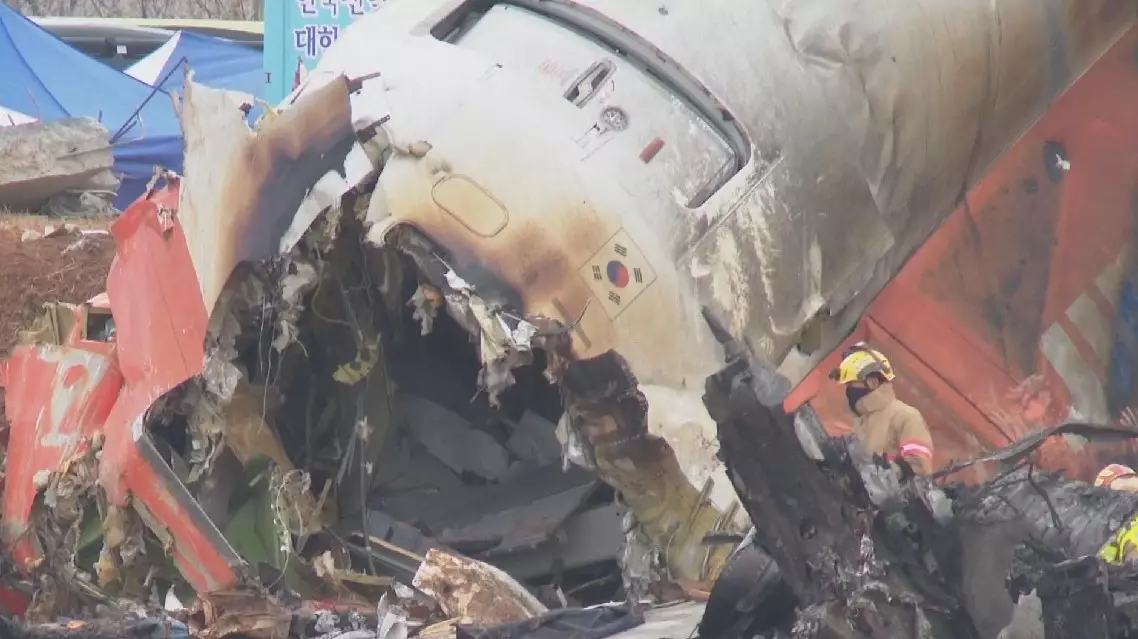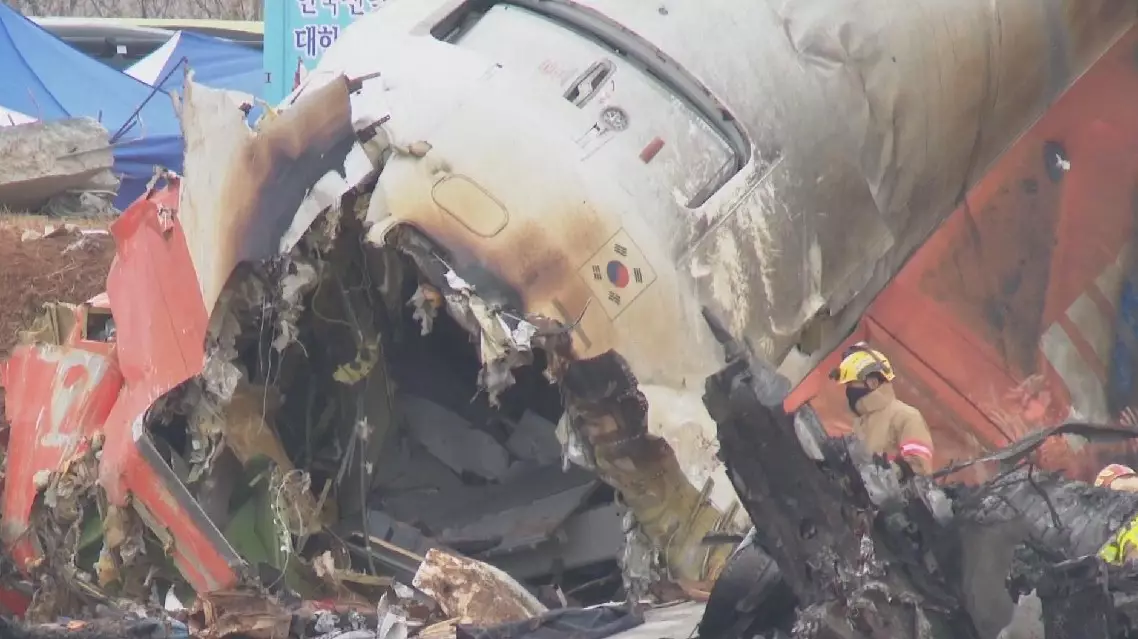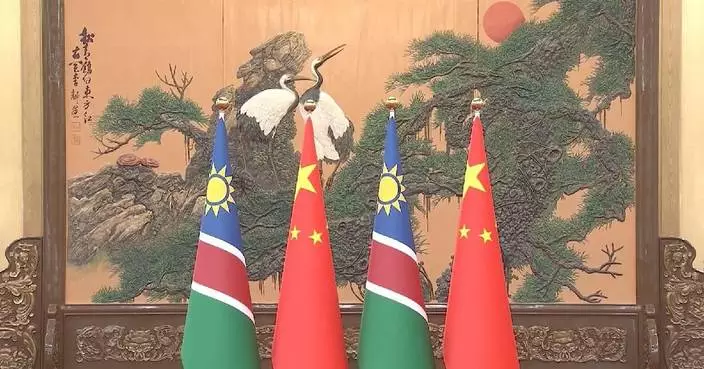South Korea's Ministry of the Interior and Safety announced on Saturday that the remains of all 179 victims of the devastating passenger jet crash in Muan County, the country's deadliest plane crash on record, have been sorted.
Around 09:07 local time on Sunday, Jeju Air flight 7C2216 from Bangkok, Thailand, carrying 175 passengers, including 173 South Koreans and two Thais, as well as six flight attendants, crashed while attempting to land at Muan International Airport. The aircraft landed without wheels, skidding off the runway, and hitting the outer wall, with its fuselage broken in half and catching fire.
The two crew members who survived the tragedy were rescued at the rear of the ill-fated aircraft, with most parts of the plane severely damaged.
The country's prosecution then set up a special task force to collaborate with the police, fire department, and other relevant agencies in investigating the incident.
All 179 victims of the incident were identified on Wednesday.

Remains of all 179 victims sorted in South Korea's worst plane crash

Remains of all 179 victims sorted in South Korea's worst plane crash
The halting of Russian gas transit through Ukraine will result in a redoubling of efforts in Europe and Russia to find new supply routes, according to Chinese scholar of international relations.
Ukraine officially stopped the gas flow on Wednesday, following the expiration of a five-year agreement with Russia's gas giant Gazprom on Tuesday. This agreement, signed in December 2019, had allowed Russian gas to continue flowing to Europe through Ukrainian pipelines despite the conflict.
Zhang Xin, associate professor at the School of Politics and International Relations, East China Normal University, said that both sides of the trade relationship will face significant challenges as a result of the development.
"That has been anticipated for long, to essentially undermine Russia's ability to fund its military operation in Ukraine and limit Moscow's ability to use energy as a strategic leverage in Europe. And that's the main purpose. That kind of long term stable energy cooperation is part of economic interdependence between Russia and Europe has now come to an end, at least for the foreseeable future. So that's probably an even bigger loss for Russia as well as for Europe," Zhang said.
Following the halt of Ukraine transit, the TurkStream pipeline under the Black Sea has become the sole remaining route for transporting Russian gas to Europe.
The European Commission says the share of Russian pipeline gas in EU imports has plummeted from over 40 percent in 2021 to about 8 percent in 2023, with Norway and the United States emerging as the new top suppliers.
Amid concerns about supply shortages and soaring energy costs, Zhang predicts that countries will seek new ways to secure alternative transit and import routes for gas, continuing a trend that has emerged from the conflict.
"A larger implication for the geopolitics of energy for Russia, Europe, even for the global energy market probably consists of a few important trends in the foreseeable future. All major actors in Europe in Russia are going to intensify their efforts, double their efforts to look for alternative transit routes, import, export routes for gas as we've already seen in the past few years. But I think efforts along that line will be even intensified," Zhang said.

Ukraine's halting of gas transit impacts Russia's energy leverage on Europe: scholar











